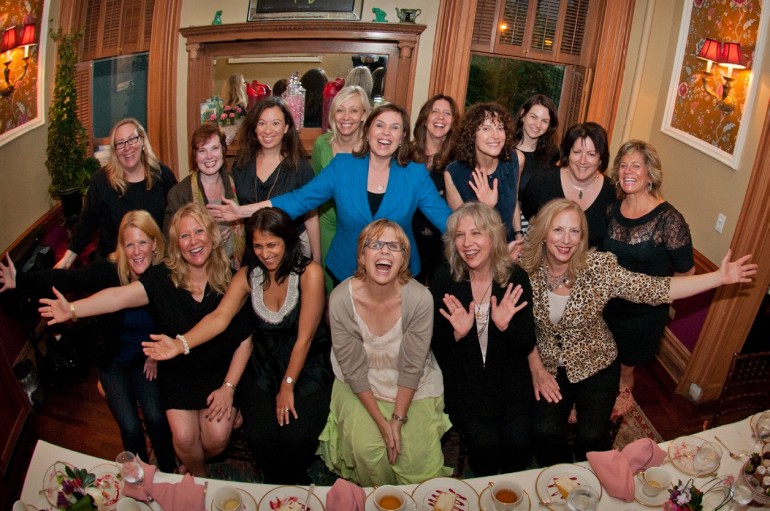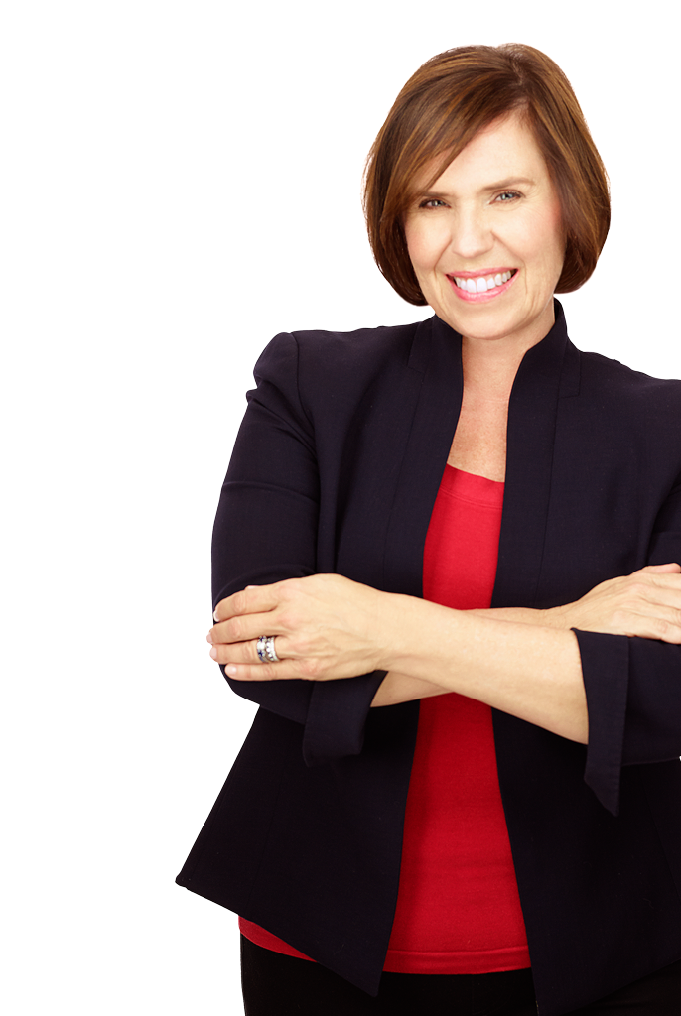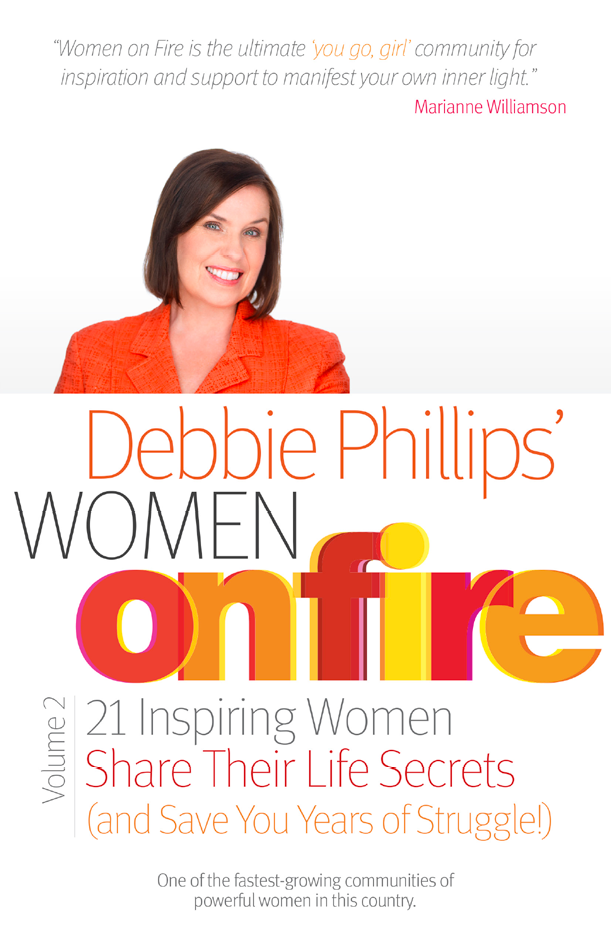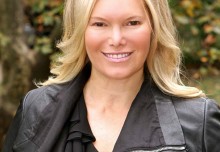
If you are looking for a virtual community that is safe and geared to you and your needs, look no more. Debbie Phillips founded Women on Fire so women could feel inspired, strategize and support each other.
Dr. Mache Seibel: What is Women on Fire?
Debbie Phillips: Women on Fire® is an organization, and it’s also a book series. I wanted to create a women’s community where everyone could follow their dreams and while they’re doing that, they could feel the inspiration, strategies and support of other women. I began in this organization in 2003 and named it Women on Fire, which with your menopause interest is kind of right up your alley.
Dr. Seibel: When I hear women on fire, I think of hot flashes and that’s exactly the people I talk to, but what is the age group of most of your Women on Fire?
Debbie: Well, interesting, we have little girls whose moms are involved with Women on Fire, so we have 7, 8, and 9-year olds call themselves Girls on Fire and we have some members who are 90 years old. The bulk is probably women in their 30s to 60s; but we have everybody. I created it for all women.
 Dr. Seibel: So it’s really a place where women can congregate, get together, tell their story, share their experiences and also grow from each other and from some guidance from you?
Dr. Seibel: So it’s really a place where women can congregate, get together, tell their story, share their experiences and also grow from each other and from some guidance from you?
Debbie: That’s exactly what we do.
Dr. Seibel: So, what sets it apart from other kinds of women’s organizations? When women think of Women on Fire, what sets it apart?
Debbie: I think we’re different because, one, we are mostly virtual. While we do have inperson events and we have them often, we are national, and we have some international members as well. But we’ve been able to recreate in a virtual world that sense of safety, that sense of joy when we get together. People will say to me “there’s no other group like this.” I also think the fact that our members really support each other and really cheer on each other’s successes has set us apart.
Dr. Seibel: From what you’re saying, it does give women the opportunity to have girlfriend time. And in the busy world we all live in, if you have to drive an hour to get to a meeting it’s challenging. Some of these women must get together outside of the virtual meetings that you hold?
Debbie: Oh, they do. That’s the thing that gives me the most joy. They’ll meet each other in the virtual world, not know each other, but get a sense of each other; then, they’ll get together.
Our members really support each other and cheer on each other’s successes
The other thing, It’s like, “OK, what do I wear? Who’s going to take care of the kids? How can I carve out the time?” In Women on Fire world, you can go and get a dose of being lifted up, being supported, get great ideas, learn something new all by going on-line, and I’m very proud of that aspect because I wanted it to be very inclusive of women and not have it be that a woman can’t get the support she needs because she can’t take the time to go someplace.
Dr. Seibel: Right. And also, you don’t have to buy new clothes or do your hair or get your makeup done to go.
Debbie: Exactly!
Dr. Seibel: The notion of a safe place I think is very important because online can be a scary place, you don’t always get what you think. Also, since the ages are not clustered, a young member might help an older member with the social, and a more mature member might offer experience in life, family or work to a younger member.
Debbie: Exactly. The intergenerational aspect of Women on Fire has been one of the most amazing joys and that is precisely like you were describing has actually happened.
Dr. Seibel: You talked about some changes that women can make that can have a longstanding impact on their lives. What are one or two simple changes that women can start doing today, that have a longstanding positive impact on their life?
 Debbie: I’ve talked to thousands of women and I know that it is such a struggle for women to find time for themselves. First of all, a lot of women don’t even believe they deserve the time for themselves, but once they know, “Yes, I need to make time to think about my own dreams,” they need to be able to sit back and take a breath.
Debbie: I’ve talked to thousands of women and I know that it is such a struggle for women to find time for themselves. First of all, a lot of women don’t even believe they deserve the time for themselves, but once they know, “Yes, I need to make time to think about my own dreams,” they need to be able to sit back and take a breath.
So, I encourage women to literally figure out: Can I take 10 minutes for myself each day? Can I take 20 minutes for myself each day in creative daily practice around that? For instance, you as a doctor know meditation really does matter and really can make a difference. So I say to women, “Even if you just sit quietly, if you feel like ‘I don’t really know how to meditate or I can’t stay focused,’ time yourself and sit quietly for 10 minutes.”
Get up 10 minutes early a day to do that, and have a daily practice that is just for you. It can mean walking around the block or something that would give you joy preferably in the morning that starts your day out.
Dr. Seibel: It’s interesting that you focus so much on time for yourself. It’s very much like a process I created that will very shortly be available at www. MenopauseBreakthrough.com.
As part of that I talk about creating a “You Zone,” an approach to understand how you relate to the rest of your world and making sure that you have the time for you. In fact, some of the things that I offer in the program are some of the kinds of things you were talking about: walking around the block, the meditation, and so forth, that I consider my Self Care Prescription™. Following this approach helps women break through some of their personal fears, concerns and misun-derstandings and create a Menopause Breakthrough. You can’t cram for life; you have to incorporate a little bit every day and create good habits that will serve you well in the long run.
Have a daily practice that is just for you that give you joy
Debbie: That’s absolutely brilliant, the “You Zone.” Women need to hear this and they need to hear this from men. I’m so happy that you’re the doctor that you are and that is a gift to women. But men really can help so much by encouraging women to take time in their “You Zone” and take time for self-care, and take time to have these kinds of practices. It makes a huge difference.
Dr. Seibel: Right. And eventually they have to hear it from themselves because that’s the tape that has to play in your head to have time for you.
Debbie: Right.
Dr. Seibel: I wanted to ask if you could share some of the most common mistakes that women make so you can save them the pain of making those mistakes.
Debbie: First is failing to cheer on the successes of other women. There is a lot of withholding. I always say “the rising tide lift all boats.” It is a mistake when women withhold their praise because they’re jealous or don’t know what to say.
A lot of us as little girls were taught you don’t brag about yourself, and so don’t give praise to other women. Giving praise is very, very important, and it makes you feel good. I’m not talking about saying something that isn’t genuine – but if you see somebody standing in the grocery line and she’s wearing a fabulous coat, just go, “Hey, I love your coat!” You know, some-body walked up to me the other day in the airport and said, “Oh my gosh, I love your haircut!” I don’t think of myself as having pretty hair and I’m still remembering the story to tell you!
 The second point is we don’t invest in our potential and ourselves. We’re thinking about our children or our parents, and we need to invest in ourselves. By that, I’m talking about a workshop, a course, our own growth. Even going to any seminars or investing in your potential, buying a book that might help you. I see it as a mistake when women don’t think of themselves first in investing in themselves.
The second point is we don’t invest in our potential and ourselves. We’re thinking about our children or our parents, and we need to invest in ourselves. By that, I’m talking about a workshop, a course, our own growth. Even going to any seminars or investing in your potential, buying a book that might help you. I see it as a mistake when women don’t think of themselves first in investing in themselves.
Third: Women failing to ask for help. I know from leading thousands of women, asking for help is really, really important. Women say to me, “I’ve never even thought about asking for help. I don’t even know who I would ask.” You will always find more people wanting to help you than you’ve ever imagined.
Dr. Seibel: And in doing that, you save a lot of frustration, prevent doing it wrong and save a lot of time. It doesn’t reflect a weakness in you. It takes a strong person to know when they need help and go get it.
Fourth: Comparing yourself to others. There is always going to be somebody more beautiful, wealthier, or thinner, and with better-behaved children – always, always, always.
At Women on Fire®, we also talk about the importance of writing down goals. Most people do not write down their goals, or even how to write down a goal. So, at Women on Fire®, we talk about our goals and the fact that it’s really important to compare ourselves against our goals, not against someone else’s life, someone else’s success. Use that for inspiration, but actually just compare yourself to yourself and where you want to be.
I invite any woman who is interested to visit www.womenonfire.com and sign up for free weekly inspiration, strategies, and support. Our newsletter is called the Spark and you can receive this in your inbox every week. If you want to become involved in our circle of women that I described earlier, we have a membership program and you can get to that through the website. Check us out!





